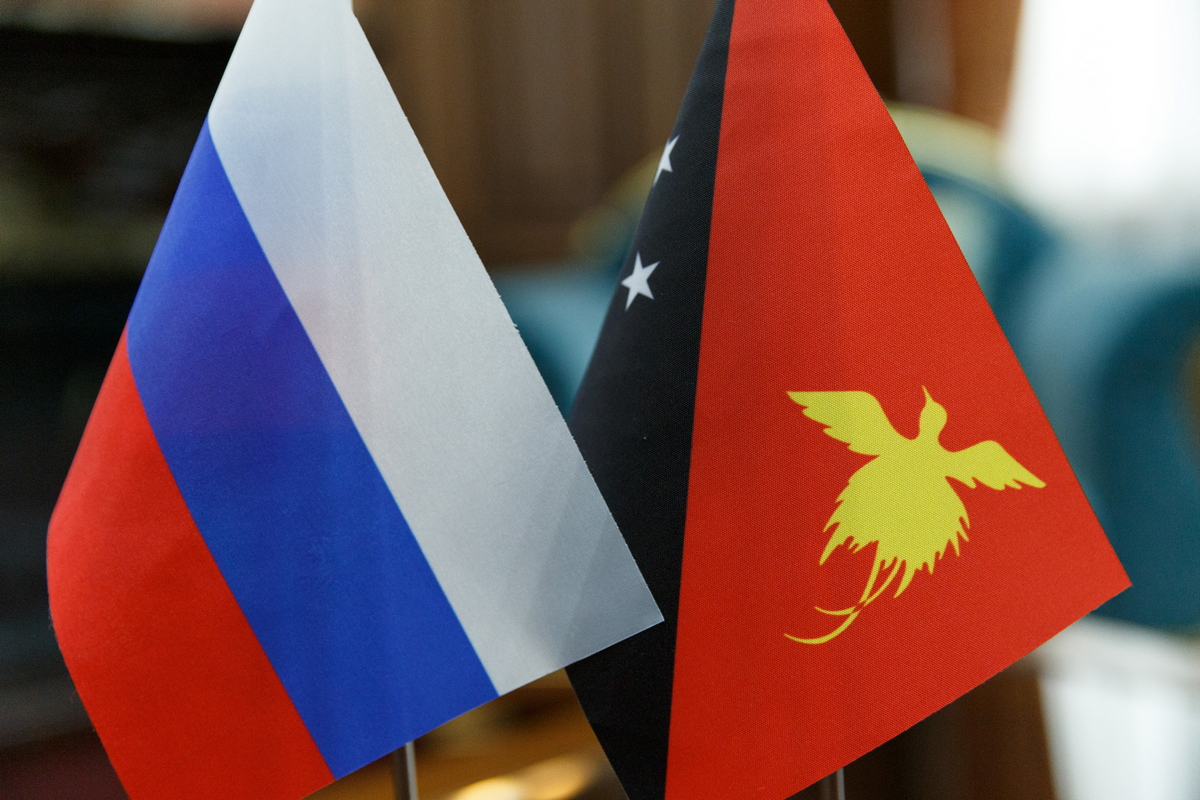On May 19, 2021, the Russian Federation and the Independent State of Papua New Guinea (PNG) celebrated the 45th anniversary of diplomatic relations. Assessing the Russia-PNG dialogue, several points are noteworthy.
For the Russian Federation, relations with PNG are among indications of its great power status. By its definition, the great power cannot limit its policy to its immediate neighborhood. It should expand its presence, as well as strengthen its positions, in distant countries and regions.
The South Pacific where PNG is situated becomes an area of intensifying competition between influential Asia-Pacific actors. The South Pacific is part of China\'s and the US\' mega-projects the Belt and Road Initiative and the Indo-Pacific Region respectively. For Russia, to make its presence in the South Pacific visible to all the regional actors is an appropriate foreign policy measure.
In relations with Papua New Guinea, Russia enjoys a unique competitive advantage, specifically, the legacy of the outstanding explorer and humanist Nicolay Miklouho-Maclay. In PNG, works of the great Russian citizen are published, monuments and memorials in tribute to his achievements are unveiled, remarkable academic and educational events focusing upon his legacy are organized. This is a valuable reputational asset as the South Pacific small states, including PNG, perceive other big regional and extra-regional powers in a totally different light. The US is associated with the regime change policy, while Australia and China – with pollution and debt trap diplomacy respectively. Also, memories about Japanese policy during the Pacific War are still alive in the region. In its turn, Russia is associated with the humanist alternative of development substantiated by practical actions.
Nevertheless, relations between Russia and Papua New Guinea develop in a spontaneous rather than in a systematic manner. The trade connections are weak: from 2015 to 2020, the trade turnover decreased from 7.0 to 4.2 million dollars. The parties do not perform investment projects at each other\'s markets. For Russia, to carry out infrastructure projects in PNG is problematic as this niche is occupied by Australian companies, and since recently, Chinese companies have been active in exploiting it. Australia uses reliable and effective instruments to support the infrastructure development, among which of special note is Technical and Vocational Education and Training – TVET, while China premises its policy upon the Belt and Road Initiative. Prospects for Russia\'s deliveries of its ICT-products, relating, for instance, to the protection of critical infrastructure, to PNG are absent. In case industrial objects are constructed by China, its companies are given the privilege to support them with the Chinese ICT solutions.
With specific respect to Russia and PNG, the spectrum of their instruments to coordinate economic prospective plans at Asia-Pacific multilateral venues is narrow. Moscow and Port Moresby jointly participate only in APEC. In this framework, they have been involved in realizing joint initiatives. Specifically, in 2017 the project “The Analysis of Prospects of Tourism Sustainable Development in the Distant Territories of APEC Economies”, developed by Russia, PNG, the Philippines and Indonesia, is worthy of note.
Nevertheless, as Sino-American contradictions intensify and the Asia-Pacific economic area becomes fragmented rather than consolidated, APEC is slipping into irrelevance. Consequently, its contribution to fostering relations between Russia and PNG, even initially modest, tends to decrease.
The down-top vector in Russia-PNG economic relations, specifically, market entry by means of franchising and other forms, is absent either. It can hardly be expected that Russian convenience store chains like Diksi, Magnit or Pyaterochka, as well as restaurants of Russian cuisine Elki-Palki or Teremok (not to mention Gusyatnikoff, Oblomov or Shalyapin) could be a success in PNG. For this scenario to materialize, Russian ethnic diasporas as the initial “critical mass” of consumer demand is a necessary prerequisite. As Russia\'s and PNG’s brands are not well-know at each other’s markets, prospects of PNG franchises in Russia are poor too.
Regrettably, both Russia and PNG lack instruments to intensify economic exchanges by means of already existing resources. People-to-people contacts have been and remain at the incipient stage. At the top level, professional events are held irregularly at best, while at the mid- and the grassroot level they are non-existent. Tourism exchanges are also absent.
The factors outlined above suggest that Russia and Papua New Guinea lack a secure foundation to raise their economic and commercial exchanges to a new level. In the short-term and the mid-term perspective, this is unlikely to change.
Among the institutional venues of political and security cooperation, the ASEAN Regional Forum, at which Russia’s and PNG’s efforts to address non-traditional security challenges can be coordinated, seems to be the most promising. The lines of its activity include search and rescue operations, humanitarian assistance and disaster relief etc. Nevertheless, the emphasis on confidence-building rather than on the implementation of practically-oriented measures as the foundation of ARF activity hardly contributes to performing the key task: to increase the cooperation to the level at which it will possess self-maintaining and self-supporting ties.
In these circumstances, among the few existing instrumental assets to foster Russia-PNG relations, venues at which people-to-people contacts are developed and maintained are the most efficient. Specifically, the Miklouho-Maclay Foundation for the Preservation of Ethnocultural Heritage and the All-Russian Association of the South Pacific Researcher deserve mentioning. Arguably, the Foundation is the most active body in fostering relations with PNG. Among the events organized by the Foundation, of special note are the establishment of the Russian World Cabinet in the PNG Central Library, which took place in December 2019, several expeditions launched before the COVID-19 pandemic, as well as the production of documentary films and organizing exhibitions focusing on the legacy of Nicolay Miklouho-Maclay and the organization of Russian language courses. The spectrum of activity undertaken by the Foundation covers nearly all the aspects of humanitarian exchanges between Russia and Papua New Guinea.
Concerning the Association, it is still at the incipient stage, but is developing rapidly. To date, notable events that sparked interest in the political and the expert communities of both countries have taken place. They include the international academic and practical conference “On Russian Names of Geographic Features in Oceania” and the lecture “Russia and Papua New Guinea: the History of Relations” organized in February and April 2021 respectively. The International Symposium “Russia and Papua New Guinea” organized by the Foundation, the Association, St. Petersburg Committee for External Relations and Center for South Pacific Studies of the Center for Southeast Asia, Australia and Oceania, Institute of Oriental Studies of the Russian Academy of Sciences in May 2021, is of special significance. Influential figures from the academic and business communities, as well as representatives of government agencies, who are involved in developing ties between Russia and PNG, participated in the event. The recommendations on directions, measures and mechanisms of fostering dialogue cover a wide range of issues and include proposals on pilot economic projects supported by the administrative leverage. One of the latter accounts for public urban infrastructure development in one or several PNG cities with the assistance of Russia\'s specialists.
Prospects for cooperation between the Russian Federation and the Independent State of Papua New Guinea, although without hypothetical major breakthroughs, are fairly positive. Nevertheless, to translate this scenario from a theoretical possibility into the practical reality, Moscow and Port Moresby need to revise the vision and upgrade the instruments of cooperation. The implementation of both tasks should proceed from the foundations laid by the two countries and the on-going realities in the South Pacific international milieu.




Комментарии
Добавить комментарий